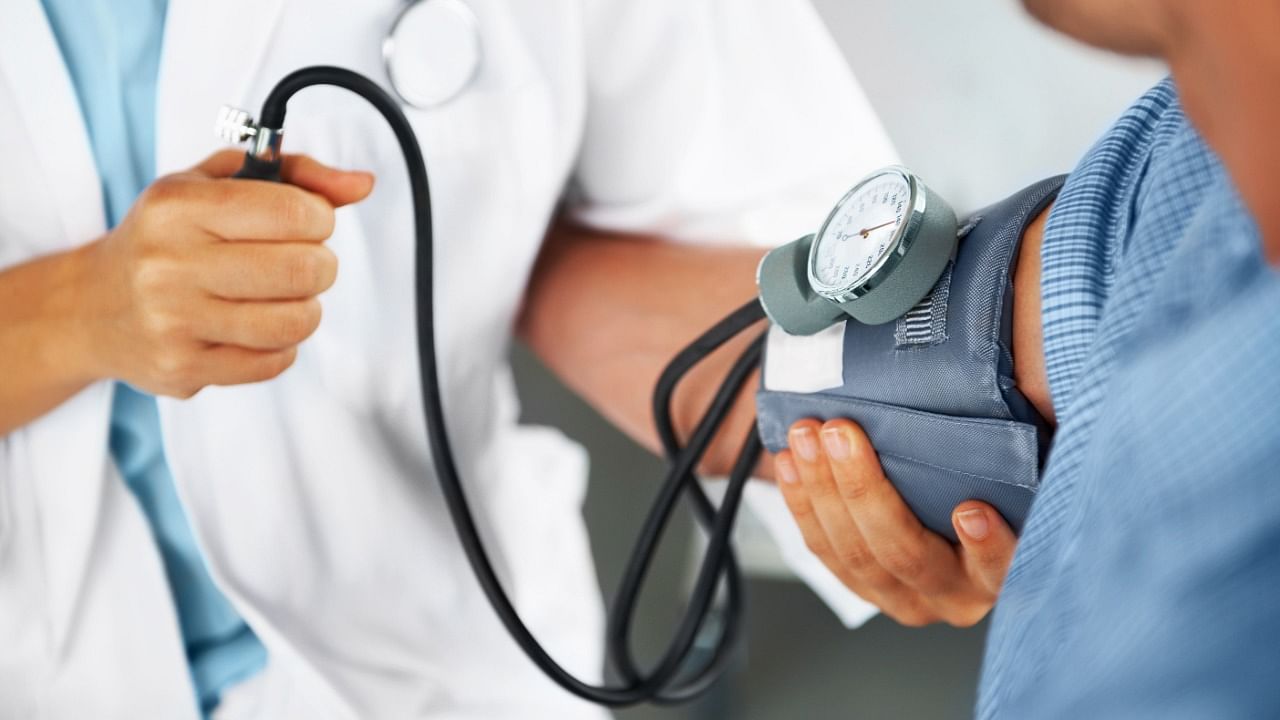
The report that looks into hypertension prevalence among 30-79 year old people says as many as 46 lakh deaths in India can be averted by 2040 if New Delhi makes progress in improving the hypertension control rate.
Credit: iStock Photo
India needs to treat 67 million more people with hypertension to achieve a 50 per cent control rate, the World Health Organisation said on Tuesday in its first global report on enhanced blood pressure, flagging concerns about a large population with uncontrolled hypertension.
The report that looks into hypertension prevalence among 30-79 year old people says as many as 46 lakh deaths in India can be averted by 2040 if New Delhi makes progress in improving the hypertension control rate.
“Hypertension, when undetected or poorly controlled, poses several serious threats to human health, with complications like heart attacks, brain strokes, heart and kidney failure causing death or disability. The WHO study reveals low levels of awareness, detection, initiation of treatment and ineffective control,” cardiologist K Srinath Reddy, past president of Public Health Foundation of India, told DH.
Globally the report shows approximately four out of every five people with hypertension are not adequately treated, but if countries can scale up coverage, 76 million deaths could be averted between 2023 and 2050.
To achieve a level of control as suggested by the WHO, India needs to enhance the count of people with controlled blood pressure by more than double – a task that requires rapid expansion of the government backed anti-hypertension programme going up to the village level.
But a central government initiative to provide high quality treatment to patients with hypertension has expanded to only 155 districts in 27 states five years after its launch and that too with intervention from the WHO as the programme lost credibility in the initial days because of unavailability of medicines.
The India Hypertension Control Initiative was launched in 2018 in Punjab, Madhya Pradesh, Kerala, Maharashtra and Telangana, but availability of medicines emerged as the biggest challenge soon after the programme began.
“Such a situation initially discouraged a patient from returning to facilities for follow-up visits in some areas. The programme was at risk of losing credibility,” the WHO said. “Also, there was no mechanism to facilitate linking patient load to drug stock in order to ensure a continuous supply at health facilities.”
The WHO consultants working closely with the Union Health Ministry and state officials ironed out the thorny issues and strengthened the medicine supply chain.
As a result by 2020, the programme ensured that more than 70 per cent of health care facilities had ensured one month’s stock of the protocol medicines, and fewer than 10 per cent had experienced stock-outs.
Worldwide, the number of people living with hypertension (blood pressure of 140/90 mmHg or higher or taking medication for hypertension) doubled between 1990 and 2019, from 650 million to 1.3 billion.
Nearly half of people with hypertension globally are currently unaware of their condition. More than three-quarters of adults with hypertension live in low- and middle-income countries.
“In India public health strategies are needed to prevent, increase awareness, detect early and initiate effective treatment. Primary health care services must provide most of these services, with digitally enabled frontline health workers providing continuity of care” said Reddy, a former professor of cardiology at the All India Institute of Medical Sciences, Delhi, who is not associated with the WHO report.
“Policies must promote and enable healthy diets which are low in salt, sugar and unhealthy fats but high in fruit and vegetables, and encourage regular physical activity while reducing exposure to air pollution. Hypertension will pose the biggest threat to India’s health if a combination of public health and clinical care strategies are not energetically implemented,” he added.
